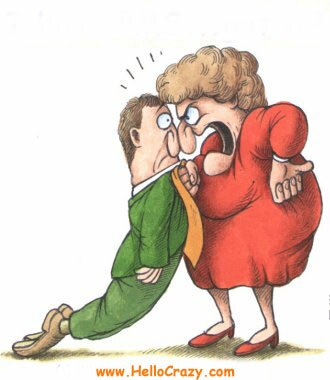|
Did menopause started? How to know if menopause started? What are main signs of menopause starting? – all these questions are very often asked in women forums.
Let’s clarify what are signs of menopause starting.
First of all, it is important to clarify what is menopause. Menopause is a naturally occurring stage in women life which means the cessation of menstrual periods – it is a time of the end of women’s reproductive function and reproductive years. Medically menopause is defined as the absence of menstrual periods for 12 consecutive months. Usually menopause happens between the ages of 45 and 55. During menopause, a women’s reproductive system changes, resulting in a discontinuation of estrogen production, the menstrual cycle, and egg maturation.
The simple explanation of menopause is that your body and your reproductive system are not anymore working to the way it is used to. The average woman reaches menopause about the age of fifty- one, although it can vary from your thirties to your fifties. Certain factors such as the age your mother began menopause and environmental influences may play a key role in determining when you begin to experience the signs of menopause.
|
|
By the way, the word “menopause” is a combination of two Greek words which mean month and terminate. Translated literally menopause means "the end of the monthlies."
Main signs of menopause include the following changes:
Menopause sign 1 – changes in Menstrual Cycle
Hormonal imbalance is typical for menopause. During menopause ovaries reduce hormonal production (mainly estrogens and progesterone) and it leads to menstrual disturbances – menstrual cycles getting delayed or coming early (irregular periods). Menstrual flow also can be changed during menopause – periods could become heavier than normal or lighter than normal.
Menopause is defined as the absence of menstrual periods for 12 consecutive months - it signifies the end of menstruation cycle and fertility in a woman; it also means that the ovaries have stopped producing eggs and production of hormones like estrogen and progesterone has reduced.
Many women will go through several years of menstrual dysfunctions before their periods end.
Menopause sign 2 – Hot Flashes
Hot flashes are the most frequent symptoms which many women experience during premenopause, perimenopause and menopause, but not all women undergoing menopause experience hot flashes.
Hot flash is a momentary sensation of heat that may be accompanied by a red, flushed face and sweating.
Hot flash is a feeling of warmth that spreads over the body and often most strongly felt in the head and neck regions - the sudden, intense, hot feeling on your face and upper body, perhaps preceded or accompanied by a rapid heartbeat and sweating, nausea, dizziness, anxiety, headache and/or weakness. During menopause some women experience an “aura” (very specific feeling just before the hot flash) which lets women know what it is coming. The flash is followed by a flush, leaving woman reddened and perspiring. Menopausal women can experience soaker or merely a moist upper lip.
Hot flashes during menopause usually last from 30 seconds to several minutes. In general, hot flashes last only few minutes, however, some unfortunate women can experience hot flashes lasting up to 30 minutes. Some menopausal women can experience as many as 15 hot flashes in one day, but typically hot flashes occur 2 to 4 hours apart during menopause.
Sometimes hot flashes could be accompanied by night sweats (episodes of drenching sweats at the night) which could lead to awakening and difficulty falling asleep again, resulting in unrefreshing sleep and daytime tiredness.
Menopause sign 3 – changes in Mood
It is well known that hormonal disturbances have influence at women mood and emotional status. As during menopause hormones are “flashing”, several episodes of mood change and emotional stressful situations can be observed during menopause. Certain hormones are responsible for mood swings – they make some menopausal women more passive, others help towards relaxation, while others make a person more active and energetic. The imbalance of hormones caused by menopause can also affect the ones which alter a person's emotional state, causing depression, tiredness, forgetfulness, irritability, mood swings, or aggressive behavior.
Menopause sign 4– changes in premenstrual syndrome (PMS)
Many women could have PMS even before menopause. During menopause, however, it either increases in frequency or intensity. PMS is one of the most common forms of hormonal imbalance, and as a woman's hormonal balance gets further strained by menopause, PMS intensifies. Women who suffer from PMS early in life before menopause will most likely experience more telling effects as they enter menopause.
Menopause sign 5 – weight gain
Menopause is a very special period of women life – as women approach menopause they endure many unpleasant symptoms which include menopausal weight gain. In most cases women in menopause continue eating the same amount. Fewer calories burned combined with the same intake means more weight. About 85%-90% of menopausal women experience different types of weight gain. In most cases the additional pounds ravage woman´s self-esteem and self-image. In addition, the weight gain can usher in a host of health concerns that put a woman at risk of developing life-threatening conditions.
In general weight gain takes place when a woman increases her body mass, whether as a result of fat deposits, additional muscle tissue, or excess fluid. But weight gain associated with menopause typically involves increased amounts of fat around the mid-section.
At menopause women gain about 12-15 pounds – the most weight usually accumulate around the abdomen and women often notice the shape of their bodies slowly lose their hour-glass figure and begin to take on a rounder shape.
At the same time during menopause many women mention breasts lose fullness - loss of breast fullness is one of the most disturbing signs of menopause. During menopause the bra could become loose and without support breasts may sag.
 |
|
Menopause sign 6 – unusual hair grow
Reproductive period of women life is characterized by balanced ration between estrogen and testosterone. During menopause the sudden drop in estrogen levels sometimes causes the increased levels of testosterone (hirsutism). Unfortunately, testosterone is what determines hair growth and increased testosterone could provoke unpleasant hair grow on face and body of menopausal women.
Sometimes during menopause the thinning of hair could be observed. Hair thinning could occur both on head as well as pubic area.
Menopause sign 7 – changes in sexual desires
Lack of estrogens during menopause could be responsible for loss of interest in sexual activities/desires. Hormones are what fuel the drive for sexual intercourse, and in some women this imbalance manifests as a lack of desire for intercourse. On a psychological level, the depression that usually accompanies menopause may leave a woman feeling old and unattractive, which definitely curbs the desire too. Lastly, the vaginal dryness that accompanies menopause can make intercourse very painful, so this, too, is a contributing factor.
During menopause women often don't feel like having sex, while others may feel that their orgasms are less intense.
MENOPAUSE TESTS 
|
|
|
Menopause sigh 8 – sleeping problems and/or sleeping disorders
Often trouble sleeping could be very early sign of menopause. The usual cause of lack of sleep is night sweats, which are caused alongside hot flashes. At the same time the mood swings and depression that accompanies hormonal imbalance make menopausal women stay up all night worrying or hyper and jumpy.
Trouble sleeping and fatigue during the day may be caused by night sweats which sometimes require getting up and changing soaked sheets. Sleep disturbances can occur due to restlessness or night time sweat. Women who tend to sweat more often have to change their sheets several times during night.
Menopause sigh 9 – vaginal dryness
During menopause women could experience vaginal dryness and itching. The drop in estrogen levels during menopause cause a thinning and drying out of the vaginal walls, which leads to less lubrication – vaginal glands don't produce enough lubrication, causing stinging especially during sex. This makes intercourse painful and can lead to a decline in sexual activity.
Menopause sigh 10 – chronic fatigue, depression and stress
These symptoms generally result as an offshoot from the other symptoms. Lack of sleep and the depression which leads to it will result in low energy. Also, some women in the later parts of their years try to go for crash diets to stay slim and young looking. Unfortunately, crash diets lead to a lack on nutrition, which drops your energy levels drastically.
Up to 75-80% of menopause women report being more fatigued, emotional, nervous, depressed and stressed.
Menopause sigh 11 – water retention
It is well known that body metabolism is heavily influenced by female hormones. The hormonal imbalances in menopause sometimes manifests as a drastic lowering of the metabolic indicators that control the rate at which body cells retain water and burn off excess fat. This leads to water retention and weight gain.
|